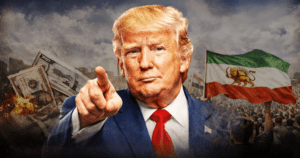The Washington Eye
In a politically charged move that has upended conventional budget norms, Congress has approved a rescission package championed by former President Donald Trump that strips nearly $9 billion in previously approved spending. The legislation, which targets foreign aid, public broadcasting, and global health programs, is not just a rollback of funds, signals a deeper shift in how executive power and partisan priorities may shape future U.S. policy.
A Constitutional Shortcut Becomes a Fiscal Weapon
The revival of the 1974 rescission process, last used at this scale in the Reagan era, allowed Trump-aligned Republicans to bypass the Senate filibuster and roll back appropriations through a simple majority vote. The successful rescission of $1.1 billion from the Corporation for Public Broadcasting and $7.9 billion from USAID-led foreign aid efforts sets a precedent for future administrations eager to nullify programs after the budget process concludes. While legal, this maneuver fundamentally alters how fiscal authority is exercised, empowering presidents to unilaterally reshape spending priorities after the fact.
This development introduces long-term instability to federal programs that rely on year-to-year continuity. Agencies and grant recipients may now face heightened political risk well after funding is secured. Such uncertainty could disincentivize innovation, planning, and investment, particularly in sectors like public media and international development, where multiyear commitments are often essential to effectiveness.
Collateral Damage to Local Media Infrastructure
While national attention often focuses on flagship NPR and PBS content, the real impact of funding cuts will be felt at the local level. Many rural and tribal communities, particularly in Alaska and the Midwest, rely heavily on public broadcasting for news, cultural programming, and even emergency alerts. With federal funding making up a critical portion of operating budgets for small affiliates—up to 40% in some cases—the rescissions place dozens of community stations on the brink of collapse (AP).
This erosion of local media infrastructure undermines civic engagement in areas already underserved by commercial journalism. As trusted information sources diminish, the risk of misinformation grows, compounding democratic backsliding and social fragmentation. Trump’s framing of NPR and PBS as “liberal propaganda machines” may resonate with parts of his base, but the long-term cost is a weakened civic fabric in communities with few alternatives.
Shrinking America’s Global Footprint
The foreign aid cuts are even more sweeping. Slashing nearly $8 billion from global health, development, and refugee programs drastically diminishes the U.S. role as a humanitarian leader. Although Congressional Republicans spared the President’s Emergency Plan for AIDS Relief (PEPFAR) from total elimination, the rescission still disables many frontline services in regions like sub-Saharan Africa and Southeast Asia.
These reductions do more than reduce aid, they shift the geopolitical calculus. As U.S.-funded hospitals, vaccination programs, and disaster relief efforts recede, global competitors like China are poised to expand influence through their own development arms, such as the Belt and Road Initiative. At the same time, pulling back from disease monitoring and food security programs undermines U.S. homeland safety by removing early warning systems against global pandemics and destabilizing mass migration corridors.
A Political Win with Strategic Consequences
Trump’s budget victories may seem like a triumph of conservative fiscal restraint, but they also reveal the strategic use of budget levers to undermine institutions that traditionally serve both parties. House Speaker Mike Johnson celebrated the move as “delivering for the American people”, while critics noted that the cuts disproportionately affect rural constituents and veterans who rely on public services. Even moderate Republicans like Sen. Lisa Murkowski voiced concern over the blow to public broadcasting in their home states.
These intraparty divisions suggest a growing disconnect between populist GOP leaders and the more pragmatic needs of their constituencies. If the rescission tool becomes normalized, future administrations may pursue more extreme rollbacks, not just on aid or media, but on health, science, and climate programs with long-term consequences.
A Final Note: Rewriting the Social Contract
By framing public media and foreign aid as unnecessary or politically suspect, the Trump team has catalyzed a broader redefinition of what government should fund and whom it should serve. The implications of this shift are not merely budgetary; they are philosophical. Do Americans accept a vision of government that retreats from global leadership and civic support in the name of partisan purity? Or will the backlash, especially from communities losing access to vital services, spark a course correction in 2026?
Either way, the passage of these rescissions is not just a budget footnote, it is a declaration of intent. The federal government, under pressure from an increasingly assertive executive branch, is no longer a stable partner in cultural or humanitarian investment. What replaces that partnership remains to be seen.
At The Washington Eye, we investigate the untold stories shaping U.S. foreign policy.














